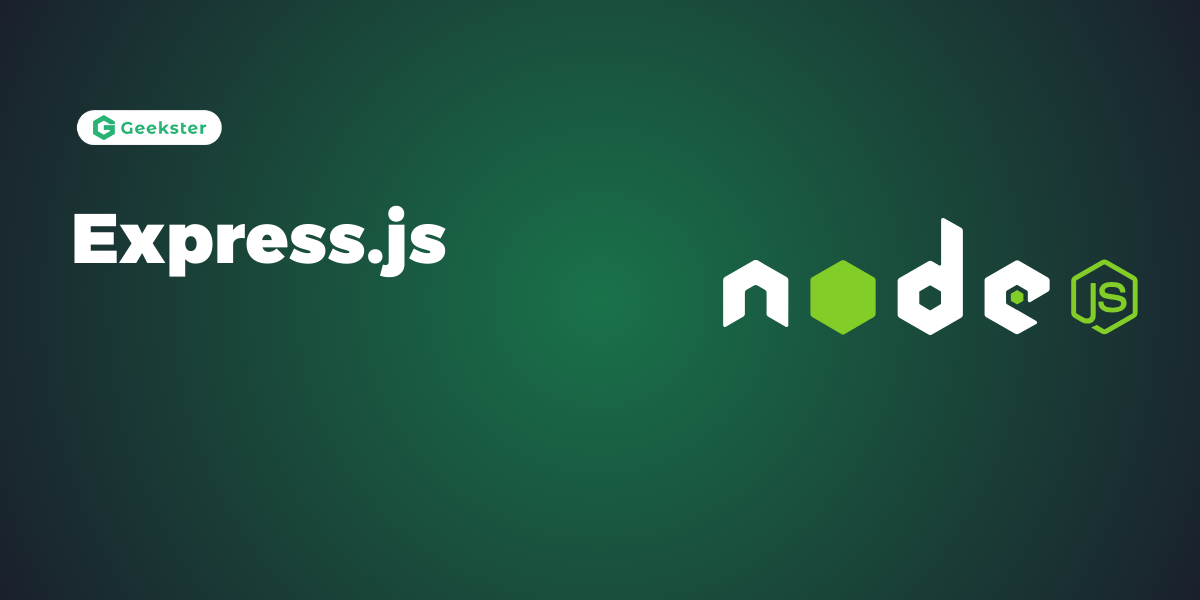Introduction
Express.js is a web application framework for Node that simplifies the process of building server-side web applications. It provides a robust set of features for handling routing, middleware, and template engines. It can be used to create both simple and complex web applications, and it is particularly useful for developing RESTful APIs. One of the key advantages of Express.js is its scalability, as it allows developers to build applications that can handle large amounts of traffic.
It is a fast, unopinionated, and minimalist web framework for Node.js. It simplifies the development of web applications and APIs by providing a robust set of features for handling HTTP requests, middleware, and routing. In this comprehensive guide, we’ll explore the world of Express.js, covering its installation, core features, advantages, and practical code examples. By the end of this article, you’ll have a solid understanding of how to harness Express.js for your web development needs.
Installation of Express.js
Before diving into the features and capabilities of Express.js, let’s start with the installation process. Setting up Express.js is straightforward and can be done in a few steps.
Prerequisites
To get started with Express.js, you need to have Node.js and npm (Node Package Manager) installed on your system. You can download and install Node.js from the official website
Setting Up a New Project
- Open your terminal or command prompt.
- Create a new directory for your project and navigate into it:
mkdir my-express-app
cd my-express-appInitialize a new Node.js project by creating a package.json file.
npm init -yInstalling Express.js:
Once your project is set up, you can install Express.js using NPM:
npm install expressThis command installs Express.js and saves it as a dependency in your package.json file.
Features of Express.js
It is packed with features that make web development easier and more efficient. Here are some of the key features:
1. Middleware
Middleware functions are functions that have access to the request object (req), the response object (res), and the next middleware function (next) in the application’s request-response cycle. It can execute code, modify the request and response objects, end the request-response cycle, and call the next middleware function.
2. Routing
It provides a powerful routing mechanism for handling different HTTP methods and URL paths. It allows you to define routes for various endpoints and methods, making it easy to build RESTful APIs and web applications.
3.Template Engines
It supports various template engines like Pug, EJS, and Handlebars, enabling dynamic content rendering in your web applications.
4. Static Files
It can serve static files such as images, CSS files, and JavaScript files using the built-in express.static middleware.
5. Error Handling
It has a robust error-handling mechanism that allows you to define custom error-handling middleware. This helps in managing and logging errors efficiently.
6. RESTful APIs
It is designed to build RESTful APIs with ease, providing methods to handle HTTP requests and define routes for different endpoints.
Advantages of Using Express.js
1. Simplicity and Minimalism
Express.js is designed to be simple and unopinionated, providing the essential features needed for web development without imposing strict conventions. This makes it flexible and easy to learn for beginners and experienced developers alike.
2. Performance
Express.js is built on top of Node.js, which is known for its high performance and non-blocking I/O operations. This makes Express.js capable of handling a large number of concurrent requests efficiently.
3. Middleware Support
The extensive middleware support in Express.js allows developers to extend the functionality of their applications easily. You can use middleware functions for tasks such as authentication, logging, and request parsing.
4 Large Ecosystem
Express.js has a large and active community, resulting in a rich ecosystem of plugins, extensions, and third-party libraries. This allows developers to find solutions and tools for almost any requirement.
5. Scalability
Express.js applications can be easily scaled horizontally by running multiple instances and using load balancers. This makes it suitable for building large-scale web applications and APIs.
6. Full Control
Express.js gives developers full control over the request and response objects, allowing fine-grained customization of the application’s behavior. This is particularly useful for building custom solutions tailored to specific requirements.
Conclusion
Express.js is a powerful and flexible web framework for Node.js that simplifies the development of web applications and APIs. Its minimalist design, combined with a rich set of features and an extensive ecosystem, makes it an ideal choice for both beginners and experienced developers.
The installation process is straightforward, and the modular architecture allows for easy integration of middleware and other functionalities. With Express.js, you can build scalable, high-performance applications that are easy to maintain and extend.
It provides the tools and flexibility you need to efficiently build a simple website, a RESTful API, or a complex web application. Its popularity and widespread use in the Node.js community are testaments to its effectiveness and reliability.
By mastering it, you can take full advantage of the Node.js platform and create robust, scalable web applications that meet the demands of modern web development.
Frequently Asked Questions
1. What do I need to install Express.js?
To install Express.js, you need Node.js and npm installed on your system. Download them from the Node.js official website.
To set up a new project, create a directory for your project, initialize a Node.js project, and then install Express.js. This will set up the basic structure and dependencies needed for your application.
It offers middleware support, powerful routing, template engine integration, static file serving, and robust error handling, making it a versatile framework for both simple and complex web applications.

